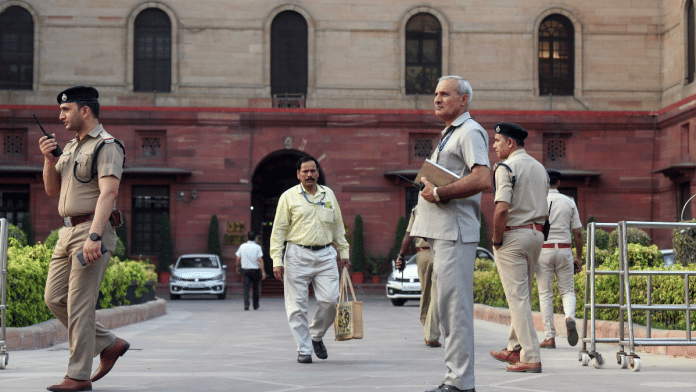New Delhi: The Ministry of Home Affairs (MHA) has prepared a concept paper for the government of the National Capital Territory (NCT) of Delhi to launch an institutionalised deradicalisation programme, ThePrint has learnt.
According to sources in the police setup, this is at a very nascent stage and discussion is yet to take place between multiple stakeholders.
ThePrint reached MHA spokesperson for a comment but had not received a response by the time of publication. This report will be updated if and when a response is received.
Delhi Police Special Cell had earlier conducted an informal deradicalisation programme for ‘terror suspects’ in 2016, but the programme later lost its pace.
“The Special Cell programme wasn’t institutionalised, and it was done very informally. But the programme did bear some results, which is why we are hopeful that an institutionalised programme will help not just tackle terrorism, but also give a second chance to some of these youths,” one of the sources said.
The concept paper includes draft proposals for this institutionalised programme.
“Discussions on candidates will include evaluations not just of the police, but also psychologists and psychiatrists. After multiple rounds of interviews and discussions, a candidate will be selected. Everything will be seen, from gauged level of radicalisation, background and a proper understanding of the person’s mindset,” another source said.
The Centre, it is learnt, will also try to roll out the programme in other states and UTs.
Asked if land will be taken to build facilities for it, one of the sources said, “that will be decided once the concept proposals are finalised. Everything is in the pipeline.”
The Special Cell programme had kicked off in 2016 with some youth detained from Delhi’s Chand Bagh area. Sessions were conducted in conference rooms of the Delhi Police. “We would get some maulvis and even professors from Jamia Millia Islamia to educate these youth,” said one of the sources. Candidates were selected from lists of people detained on suspicion of being radicalised and inclined towards terror outfits, based on surveillance.
“Deradicalisation mostly starts through social media. It can be through a Facebook closed group or just an Instagram post. After they identify some of the youths, they redirect them now to a Telegram group, because they know Telegram doesn’t cooperate with probe agencies. Further, they then continue to radicalise them through communication on Signal. They are constantly fed wrong information and overloaded with misleading narratives,” one of the sources said, explaining the process of radicalisation of young minds.
The source explained that once the radicalisation “training” is over, some of the youngsters may be asked to perform tasks to prove their allegiance.
Radicalisation, sources said, also takes place in prisons. “Some also end up being radicalised in prison after they have been lodged there for a different crime. They then come out of prison and start working with terror modules,” said one of the sources.
In 2023, the MHA had asked for deradicalisation sessions in all prisons across states and UTs. “Jail administration has to ensure inmates inclined towards propagating the ideology of radicalisation and those who have the propensity and potential to negatively influence other inmates are housed in separate enclosures away from other inmates,” the then deputy secretary Arun Sobti had said in a letter to director generals of all prisons.
(Edited by Tony Rai)






